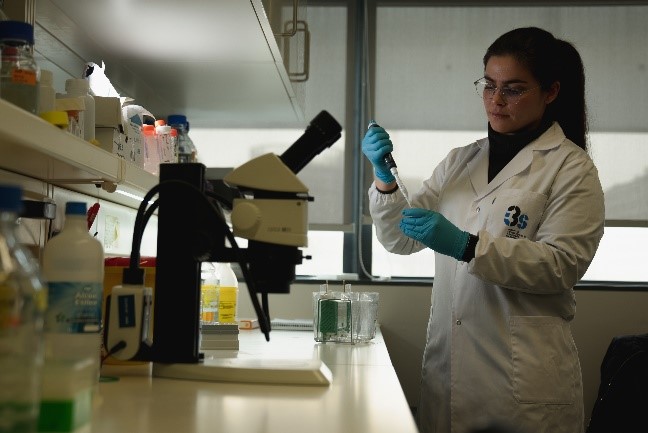18th edition of the L’Oréal Portugal Medals of Honor for Women in Science

Today, March 23, the four young Portuguese researchers who won the 18th edition of the L'Oréal Portugal Medals of Honor for Women in Science were announced. This is a joint initiative between L'Oréal Portugal, the National Commission for UNESCO, and FCT, which has been held in Portugal since 2004.
Research into cancer, microcephaly, addictive behaviors, and the preservation of water birds are the areas covered by the four award-winning projects. Edna Correia – CESAM, Faculty of Sciences, University of Lisbon; Carina Cunha – Institute for Research in Life and Health Sciences, University of Minho; Sandra Tavares – i3S – Institute for Research and Innovation in Health; and Sara Bandarra – Algarve Biomedical Center – Research Institute, Association for the Development of the Academic Center for Biomedical Research and Training in the Algarve, saw their research projects honored with a prize worth €15,000 each.
The researchers, who hold PhDs or postdoctoral degrees in their areas of expertise and are aged between 32 and 35, were selected from more than 72 candidates by a scientific jury chaired by Professor Alexandre Quintanilha.
SANDRA TAVARES
Researcher at i3S – Institute for Research and Innovation in Health
Sandra Tavares, who holds a postdoctoral degree in Cancer Biology from the University Medical Center Utrecht in the Netherlands, aims to use her research to simulate small tumors in the laboratory to help treat triple-negative breast cancer. This type of cancer accounts for around 15% of invasive breast cancers and, due to its aggressiveness and rapid metastasis, there are few targeted treatment options available.

Carina Soares-Cunha
Researcher at ICVS – Institute for Research in Life and Health Sciences (ICVS) at the University of Minho
Understanding and preventing addictive behaviors necessarily involves studying the brain and gaining a deeper understanding of the nucleus accumbens—one of the areas responsible for the feeling of pleasure that is generated after an external stimulus. Carina Soares-Cunha, Postdoctoral Fellow in Neuroscience at the Zuckerman Institute, Columbia University, United States, aims to identify the specific groups of neurons that are activated when exposed to natural rewards or drugs of abuse and that can be found in this region of the brain. On the one hand, she seeks to determine the objective location of these neurons and, on the other, to distinguish those that respond to natural rewards from those that react to chemical stimuli.

SARA CARVALHAL
Researcher at the Algarve Biomedical Center
Rare diseases are a major challenge for the scientific and clinical community. Microcephaly and genetic alterations in mitosis regulators—the process by which cells multiply—are common to several rare diseases. Sara Carvalhal, PhD in Philosophy from the University of Dundee, UK, aims to understand the relationship between rare diseases and mitosis and to study how these mitosis regulators function in the neurological system.

EDNA CORREIA
Researcher at CESAM – Center for Environmental and Marine Studies
Can the rice paddies of the Tagus Estuary provide food for humans and be home to other species? Finding an answer to this challenge of balancing rice paddy management and biodiversity conservation is what Edna Correia, PhD in Biology and Ecology of Global Change from the Faculty of Sciences of the University of Lisbon, aims to do with her research. To this end, she aims to understand how artificial wetlands such as rice paddies can contribute to the preservation of birds traditionally associated with natural wetlands. She also aims to identify the impact of these birds on rice production.
In Portugal, the L’Oréal Portugal Medals of Honor for Women in Science have already recognized 61 young female researchers.